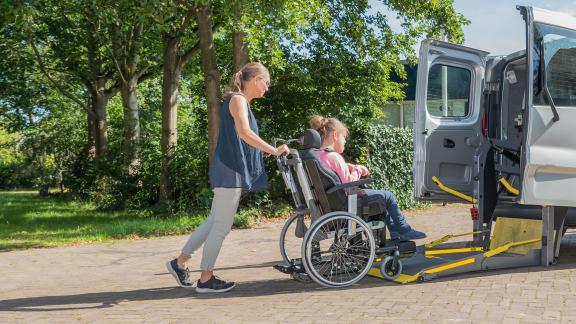T Level students enrich learning disability care

Overview
The Willows Nursing Home, part of Brandon Trust, offers Health T Level students hands-on placements supporting people with complex learning disabilities and autism. Students apply their college learning to real care tasks, develop advanced communication skills with individuals who are non-verbal, and use assistive technologies to enhance care.
These industry placements benefit both students and the organisation—students gain confidence and career direction, while The Willows strengthens its workforce. Some students have gone on to paid roles or nursing degrees, showing the long-term value of these placements in building a skilled, compassionate care team.
Key benefits and outcomes
- T Level students developed tailored techniques to support individuals who are non-verbal, using gestures, eye gaze and assistive technologies.
- Students contributed to daily living activities and care plans, promoting independence and wellbeing for people with complex needs.
- Industry placements led students to pursue careers in learning disability nursing or take up paid roles within Brandon Trust.
- Integrating students helped meet immediate staffing needs and supported long-term recruitment and retention.
What the organisation faced
Supporting individuals with complex learning disabilities and those who are non-verbal requires a thoughtful, person-centred approach. Staff at The Willows Nursing Home needed to ensure that any new team members, including T Level students, could communicate effectively with residents using non-verbal cues such as eye gaze, hand gestures, and facial expressions.
Managing behaviours that challenge was another key concern, requiring a clear understanding of behaviour triggers and consistent use of positive behaviour support plans. Additionally, the organisation had to balance the operational needs of the care home with the educational and personal commitments of the students.
What the organisation did
To address these challenges, The Willows implemented flexible rotas that allowed T Level students to complete their industry placements at times that suited both parties. Students received training in assistive communication technologies and were supervised in applying their college learning to real-world care tasks, including personal care, behaviour management and the use of visual aids. They followed detailed care plans and behaviour charts, learning to intervene appropriately and promote positive interactions. This structured, supportive approach enabled students to contribute meaningfully to the care team while developing the skills and confidence needed to pursue careers in learning disability care.
“We are delighted to be supporting Health T Level students. They are a fantastic asset to our team, bringing a fresh, dynamic energy to the workplace. Their eagerness to learn and positive approach ensure they gain valuable experience and skills in caring for people with learning disabilities. T Level students can help the people we support develop daily living skills and contribute to the creation and implementation of individual care plans. They play a crucial role in maintaining the health needs of the individuals we support.”
Haley Backes, Locality Manager, Brandon Trust
Results and benefits
The industry placements at The Willows Nursing Home offer a unique opportunity for T Level students to connect with people who are non-verbal, but they are also a unique opportunity for the sector to nurture the next generation of skilled and enthusiastic healthcare professionals.
Some students have already been inspired by their industry placement to pursue careers as learning disability nurses and others have taken paid work as support workers in the Brandon Trust after finishing their placement.
“Integrating T Level students into our teams addresses immediate staffing needs and strengthens future recruitment and retention. Once proficient, T Level students can become part of our workforce as paid support workers. Our last student, now employed by us, was inspired by their placement to pursue a career in nursing and learning disability care.”
Early Careers Lead, Brandon Trust
Takeaway tips
- An industry placement with individuals who are non-verbal offers T Level students valuable opportunities to apply different communication methods. These experiences enhance the students’ communication skills making their contributions to the person’s care more meaningful and rewarding for all.
- Those who have completed T Level industry placements are well-prepared to care for people with learning disabilities and/or autism. They are equipped to work as care assistants, and many have been inspired by their industry placements to become learning disability nurses.
- Be flexible with industry placement rotas to meet the needs of the placement, the T Level student’s personal commitments and studies, as well as the organisation’s needs.
For more information about this case study, email Haley Backes, locality manager or Nick Pugh, internal communications and engagement manager at the Brandon Trust.



